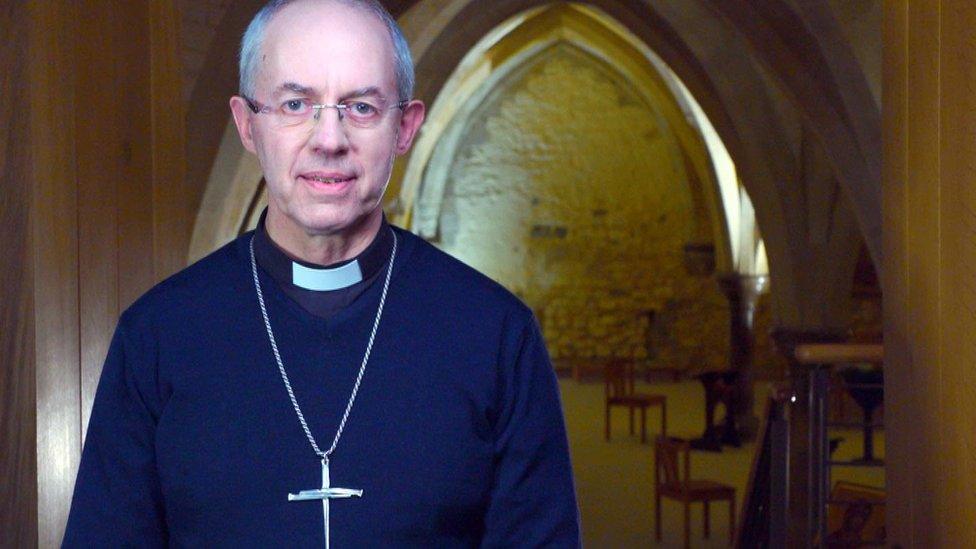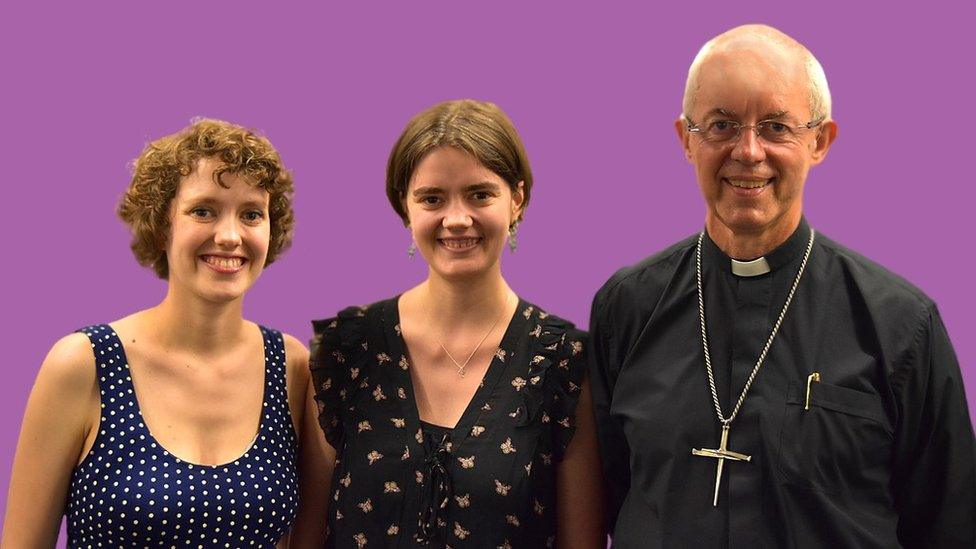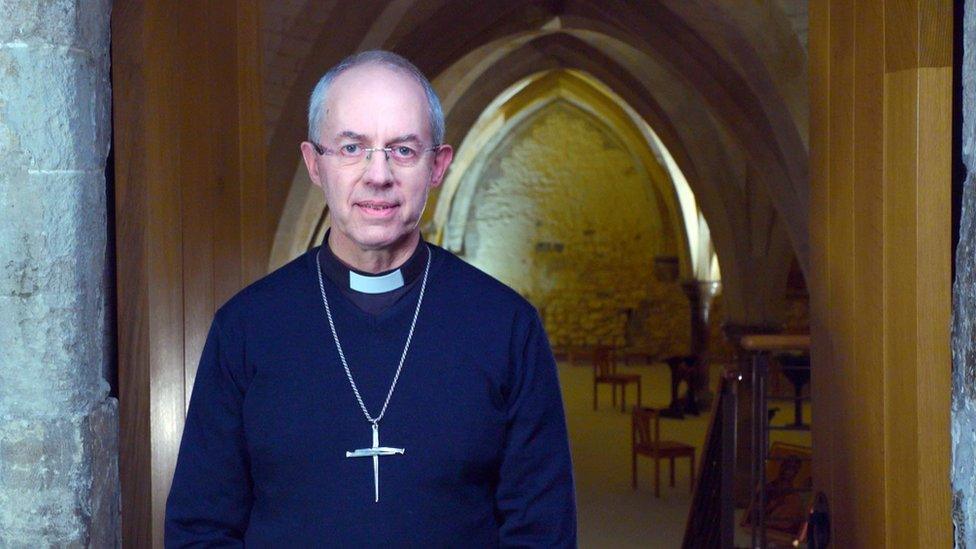Archbishop Justin Welby prays 'in tongues' every day
- Published

Archbishop Welby: "It's not something to make a great song and dance about"
The Archbishop of Canterbury says he prays in tongues early every morning.
Tongues, understood by believers to be a divine language, involves sounds with no easily understood meaning.
The Most Rev Justin Welby, who is the leader of the Anglican Church, also says he expects to hear messages and prophecies from God through others.
The Archbishop said it wasn't something to make a "song and dance about", saying using tongues was seldom an "ecstatic" experience for him.
Tongues are less associated with Anglicanism than with a form of Christianity known as "charismatic" .
Many charismatic worshippers expect the work of the Holy Spirit to be seen in miracles and supernatural occurrences in their lives.
Speaking to Christian radio station Premier, external, Archbishop Welby said every Christian was a charismatic in one sense, as they were "filled with the spirit", according to the New Testament.
He said: "In my own prayer life, and as part of my daily discipline I pray in tongues every day - not as an occasional thing but as part of daily prayer."
He added: "It's not something to make a great song and dance about.
"Given it's usually extremely early in the morning it's not usually an immensely ecstatic moment because I'm sort of 'Urrgh' - struggling."
In the interview, the archbishop also said he had been encouraged by messages people believed to have been given to them by God - often known as 'words of knowledge'.
He said: "I expect to hear from God through other people with words of knowledge or prophecies.
"An awful lot of those come in - some of them, shall we say, we read them and think I'm not entirely sure about that, and others I think 'Oh yes, I can sense there being something of the spirit of God in that.'"
Before becoming a priest in the Church of England, the archbishop was a member of Holy Trinity Brompton, in west London, where speaking in tongues and "words of knowledge" are not uncommon practices.
What does praying in tongues mean?
Tongues have no readily comprehended meaning and are sometimes believed to be a divine language unknown to the person using them.
Many believers consider tongues to come from the Holy Spirit and think they can be used in prayer when a worshipper feels unsure what to pray.
According to the Bible: "The Holy Spirit helps us in our weakness. For example, we don't know what God wants us to pray for. But the Holy Spirit prays for us with groanings that cannot be expressed in words." (Romans 8:26).
Praying in tongues is often associated with so-called "charismatic Christianity" - in which believers consider miracles and signs to be part of their every day lives.
What are 'words of knowledge'?
"Words of knowledge" and "prophecies" are messages which believers consider to be revelations given to them by God about people or future events.
Some Christians believe the Holy Spirit can transmit this knowledge to a person through their daily life.
They say this knowledge can be anything from the mundane, such as where to find your house keys, to the more significant, such as how to solve a major crisis.
Archbishop Welby said many letters claiming to be messages from God were sent to his official residence, Lambeth Palace.
- Published6 July 2018

- Published1 January 2019
